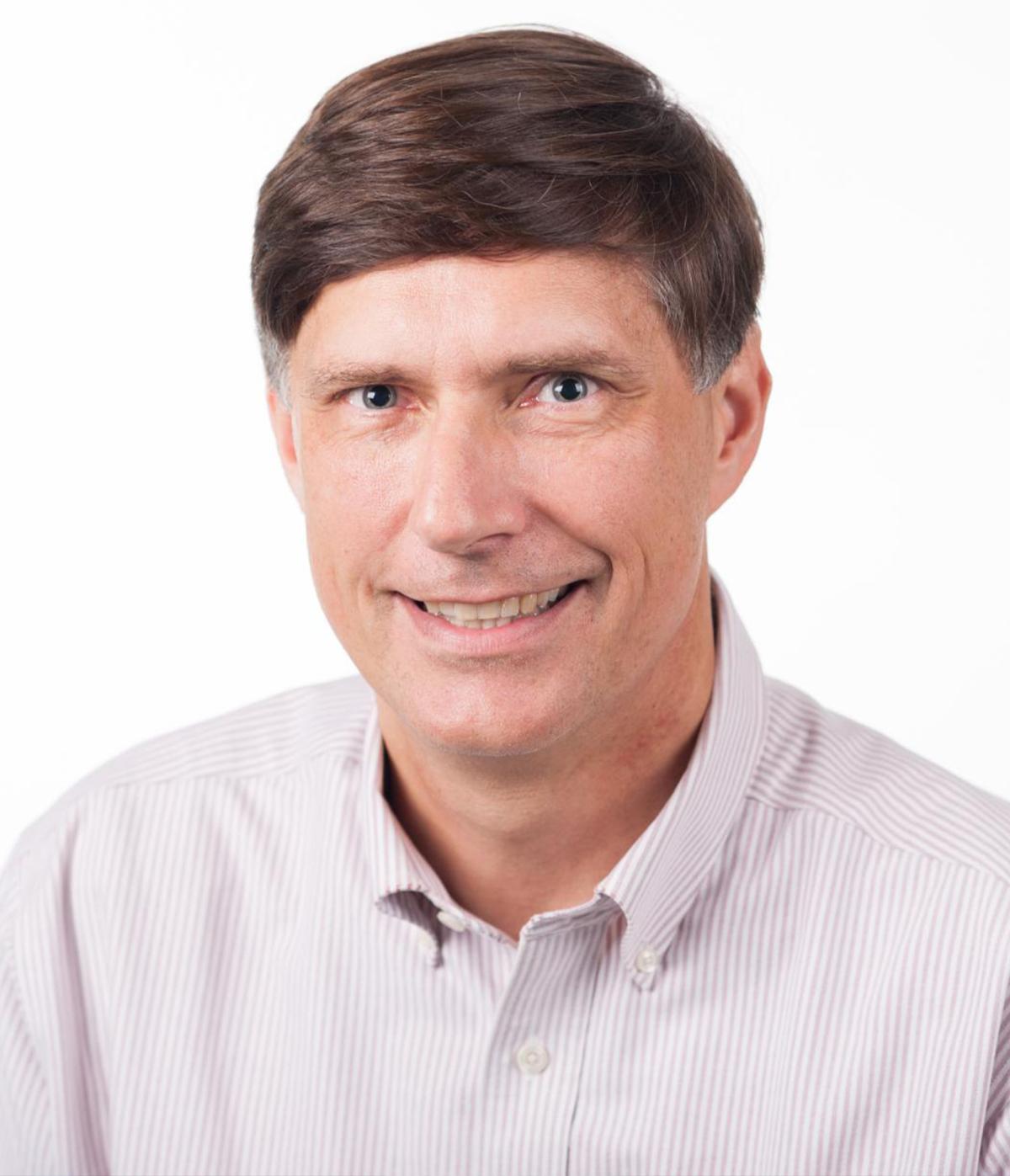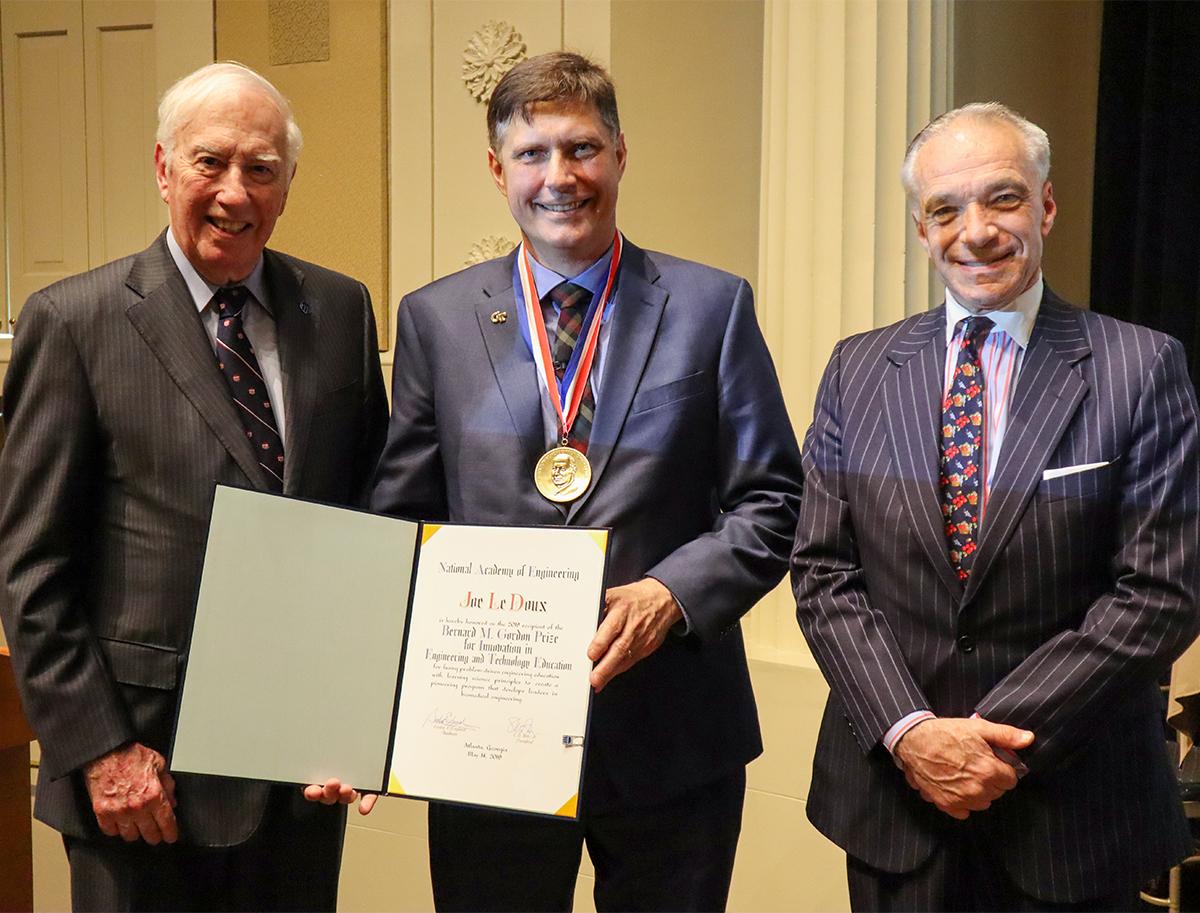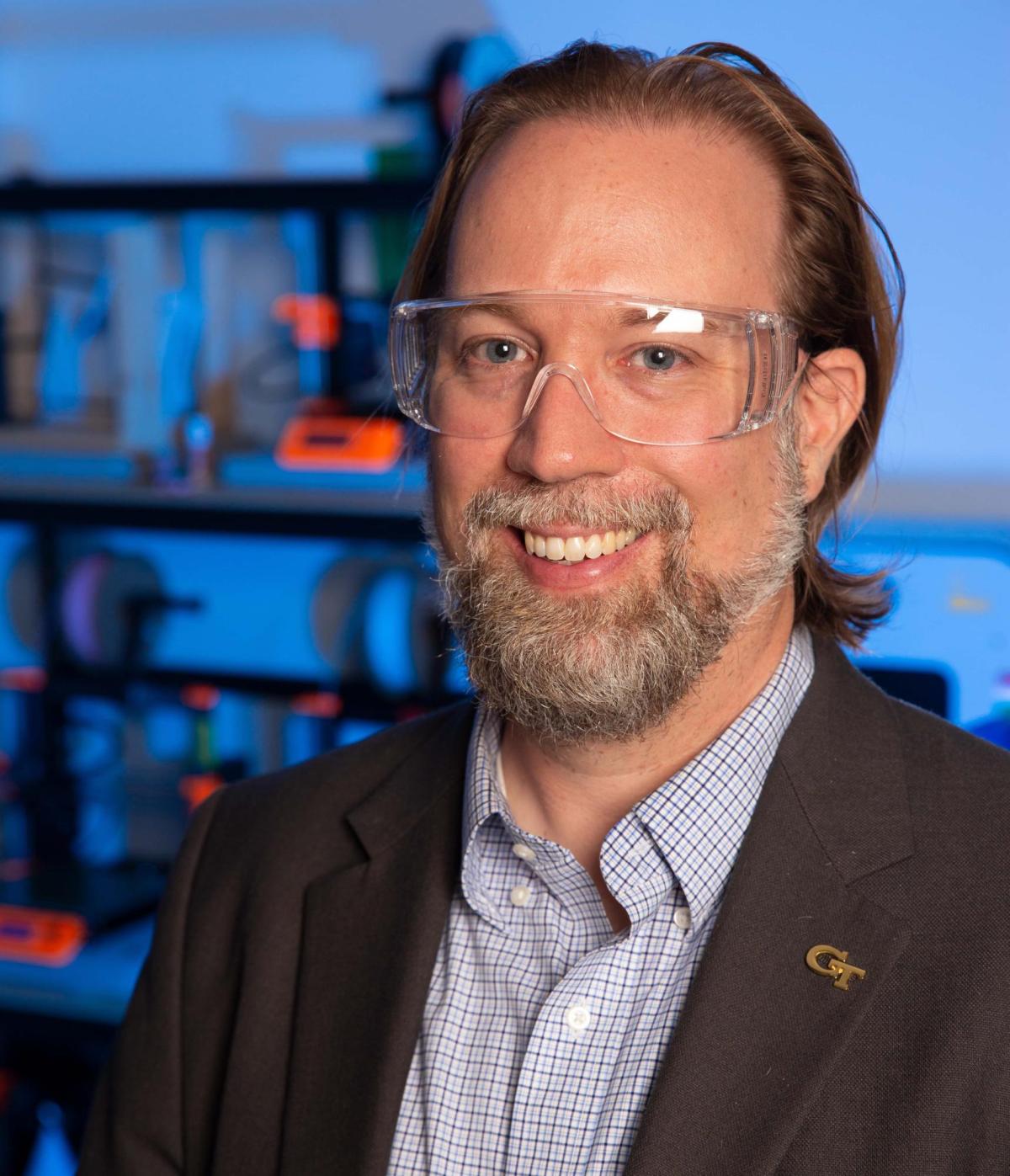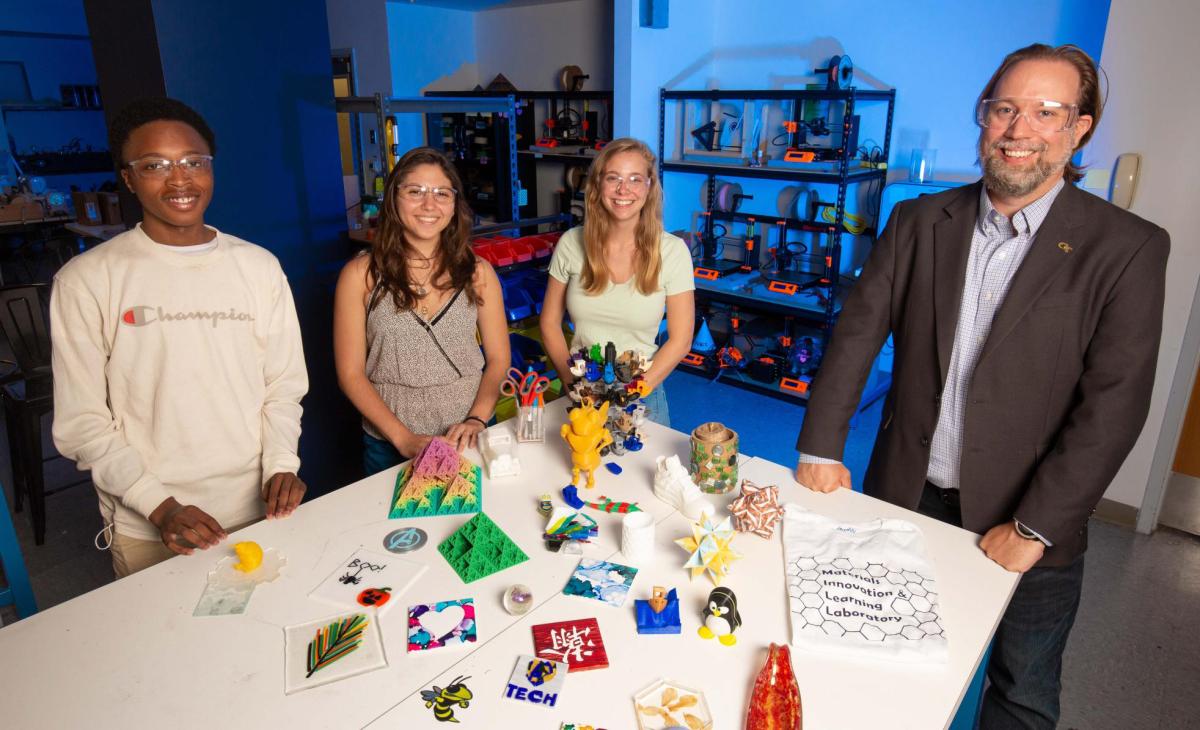New professorship honors faculty for their leadership to enhance the academic experience of students in all eight engineering Schools and within the engineering profession.
The College of Engineering is awarding new professorships to faculty members Joe Le Doux and Mark Losego for their work advancing the College’s education programs. They are receiving the Dean’s Education Innovation Professorship, positions established earlier this year by Raheem Beyah, dean and Southern Company Chair.
Le Doux and Losego have demonstrated track records and commitment to innovations that enrich the educational experience of Georgia Tech’s diverse student body. The professorships are extensions of the vision and focus of the College’s leadership to enhance the academic experience of students in all eight engineering Schools and within the engineering profession.
“I’m incredibly proud of Joe’s and Mark’s contributions to the College and Georgia Tech. Their vision has greatly benefitted our students, helping prepare them to become the engineering and entrepreneurial leaders of tomorrow,” Beyah said. “Learning is every bit as important as the College’s research portfolio. Our faculty members have been extremely innovative in their approaches to expand and improve the academic experience, and these professorships will allow Joe and Mark and find even more ways to strengthen academic and development opportunities for students.”
Along with the prestige of the professorships, Le Doux and Losego will both receive $25,000 in annual discretionary funds for up to five years.
(text and background only visible when logged in)
Joe Le Doux
Le Doux has been a faculty member in the Wallace H. Coulter Department of Biomedical Engineering at Georgia Tech and Emory University since 1998, a year after the program’s founding. He has developed several academic initiatives that have been instituted across Coulter BME, Georgia Tech, and the nation.
Building off the implementation of problem-based learning in Coulter BME, and in collaboration with Wendy Newstetter, Paul Benkeser, and other faculty colleagues, Le Doux created an entirely new way to teach highly technical analytical engineering courses: the Problem-Solving Studio (PSS) approach.
PSS is a highly collaborative, team-based learning environment that is now used in most required BME core courses. Le Doux helped lead the transformation, supporting and training his faculty colleagues as they adopted the PSS style of teaching. He has developed and led four national PSS workshops, which are sponsored by the Kern Family Foundation’s entrepreneurial engineering network (KEEN).
(text and background only visible when logged in)

(text and background only visible when logged in)
“PSS is special. When people visit a classroom, they almost always remark on how bright the room is. This is because teams of two students are attempting to solve challenging, doable engineering problems by relying on one another and the assistance of their instructors,” said Le Doux, Coulter BME’s executive director for learning and training. “Rather than lecturing, the instructors use problems to drive their students’ learning. When the students encounter difficulties, the instructors coach them with questions that challenge them to think more deeply about the concept at hand.”
Le Doux also is leading two curriculum innovation grants funded with $4.4 million from the Kern Family Foundation. The programs are introducing an approach called story-driving learning into the Coulter BME curriculum and expanding the idea into the School of Civil and Environmental Engineering, the Daniel Guggenheim School of Aerospace Engineering, and CREATE-X.
(text and background only visible when logged in)
Through this process, we help our students see that they are, or are becoming, entrepreneurially minded. In essence, this means that they are constantly thinking about how to use their engineering skills and knowledge to create value for society.
Joe Le Doux, on story-driven learning
(text and background only visible when logged in)
Story-driven learning is an approach Le Doux developed in collaboration with faculty colleagues and local playwright Janece Shaffer to help students make meaning of who they are as people at this point in their collegiate careers.
“Through this process, we help our students see that they are, or are becoming, entrepreneurially minded,” Le Doux said. “In essence, this means that they are constantly thinking about how to use their engineering skills and knowledge to create value for society. We want them to see themselves as agents of change, relentlessly seeking to put their skills to work to improve the human condition.”

Le Doux received the NAE's 2019 Gordon Prize for innovation in engineering education.
(text and background only visible when logged in)
Le Doux also has been an advocate for inclusion. He is leading a five-year, $2.4 million National Science Foundation Revolutionizing Engineering Departments (RED) grant to help make engineering education more accessible. The main premise is that the extent to which people feel included emerges from the constellation of interactions that take place at multiple social scales. In addition, faculty members need to equip today’s engineers with the knowledge and skills they need to interact inclusively at each of these social scales.
Le Doux said he is excited to expand his work in new directions with the resources provided by the professorship, including exploring the use of story-driven learning to promote the sense of belonging and inclusion of members of traditionally excluded groups, especially individuals who are at the graduate student and postdoctoral fellow levels.
(text and background only visible when logged in)
Mark Losego
Losego, an associate professor and faculty fellow in the School of Materials Science and Engineering (MSE), arrived at Georgia Tech in 2014. The next year, he helped found a student-run, open-access maker space for MSE that became the MILL — the Materials Innovation and Learning Laboratory. The MILL is now Georgia Tech’s hub for experimental education in MSE. Unlike any other maker spaces on campus, it provides tools to make measurements in addition to making things. Advanced analytical equipment common to MSE, including electron microscopes and spectrometers, are available to characterize the structure of materials and measure their properties.
Losego also teaches MSE 2001 — Principles and Applications of Engineering Materials — which serves as an introduction to materials science. It is a required course in five of the College’s eight schools and an approved elective in two others.

“I am very passionate about materials science and deeply enjoy introducing students to the discipline through MSE 2001. Over the years, I’ve sought new ways to use technology to increase student engagement while expanding class size and access,” Losego said. “The pandemic forced me to take another leap with MSE 2001, transforming the class to a fully asynchronous version based on best pedagogical principles — a format that was necessary at the time and one that I thought could continue to benefit students even after we returned to the classroom.”
Losego’s asynchronous version of the course uses short lecture videos mixed with demonstrations, quizzes, and entertaining breaks. Student grades and feedback have been consistent across the online and in-person versions — and some students have done even better online. His MSE 2001 section, which includes hundreds of students, also only uses readings from online textbooks freely available to all students through the Georgia Tech library. The decision is part of Losego’s focus on accessibility, fairness, and equity.
(text and background only visible when logged in)
I’m very excited and honored by this professorship. Internally, I’d like to leverage this platform to establish an annual workshop for the College’s incoming assistant professors to share best practices for being effective, efficient, and equitable in their teaching.
Mark Losego
(text and background only visible when logged in)
In 2017, he proposed pursuing Georgia Tech Technology Fee funds to implement TurningPoint response software campus-wide. Because of Losego’s encouragement, all Georgia Tech students now have free access to the software on their devices, allowing them to actively participate in presentations and lectures.
Losego is a member of the diversity, equity, and inclusion councils in the College and MSE. His work has included leading an effort to aggregate student resources in Canvas, Georgia Tech’s course management software. A new Canvas site due in the fall will connect students with mental health, well-being, temporary housing assistance, veterans support, LGBTQIA+ resources, and more.
“I’m very excited and honored by this professorship. Internally, I’d like to leverage this platform to establish an annual workshop for the College’s incoming assistant professors to share best practices for being effective, efficient, and equitable in their teaching. My teaching and continued interest in pedagogy was hugely shaped by a similar workshop as a junior faculty, and I’d like to provide a similar experience,” Losego said. “Externally, I look forward to broadening awareness of all of our experiential educational platforms at Georgia Tech — maker spaces, vertically integrated projects, and more — while working with peer institutions to build or grow their own experiential education programs.”

Mark Losego with students in The MILL